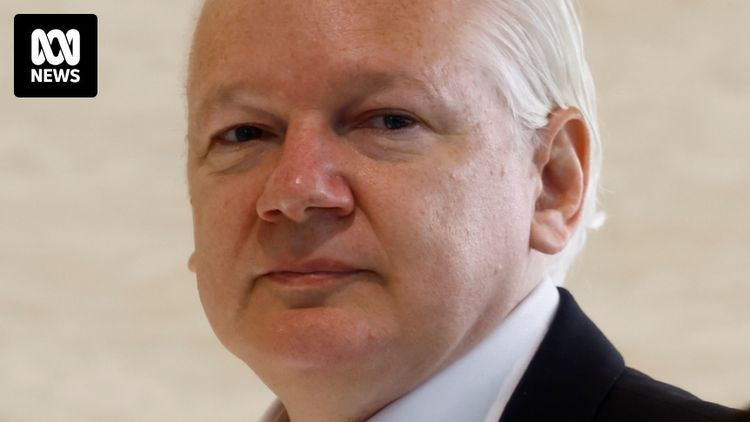WikiLeaks founder Julian Assange pleads guilty to espionage ...

WikiLeaks founder Julian Assange has pleaded guilty to a felony espionage charge in the US District Court on the island of Saipan, under the terms of a plea deal negotiated with the US government.
The resolution brings to a close a more than decade-long legal battle, sparked by Mr Assange's released a cache of classified US defence documents alleging war crimes in Afghanistan and Syria.
Chief Judge Ramona V Manglona told the court the charge was "conspiracy to obtain and disclose national defence information", which carries a maximum penalty of up to 10 years in prison.
When asked if he was prepared to enter a plea, Mr Assange said "yes".
When asked for his plea in relation to the specific charge, Mr Assange simply said "guilty".
The plea will resolve the question of Mr Assange's future, with the court likely to approve a sentence of time served given the five years he has spent in the UK's Belmarsh Prison, leading to his release.
However, it has sparked renewed concerns about the case's potential chilling effect on press freedom, with free speech advocates highlighting the need for Mr Assange's style of no-holds-barred, activist investigative journalism to keep governments honest.
Mr Assange himself told the court he believed his actions had been protected by the US constitution's first amendment, which prohibits the government from making laws which abridge freedom of speech.
The WikiLeaks founder, who was wearing a black suit, was earlier sworn in for the highly anticipated hearing, telling the court his full name and swearing to tell the truth.
Australia's ambassador to the United States, Kevin Rudd, Australia's ambassador to the United Kingdom, Stephen Smith, and human rights lawyer Jennifer Robinson took seats behind him.
All stood up as Justice Manglona, an Obama appointee, entered the court room.
She opened the hearing by explaining Saipan had been chosen for the hearing after years of negotiations between Mr Assange and the US government, and it had been agreed by all parties that the location was convenient for him to then travel home to his "dear Australia".
"Not many people recognise we are part of the United States, but that is true," she said.
The resolution to Mr Assange's case follows years of diplomacy from the Australian government, with the case reportedly becoming an issue in the US-Australia relationship.
Mr Assange spent five years in the UK's Belmarsh Prison fighting moves to extradite him to the United States in relation to the WikiLeaks publications.
He had previously spent seven years in the Ecuadorian embassy in London fighting moves to extradite him to Sweden on a charge of rape, saying he was concerned he would be extradited to the United States if he went to Sweden in person to fight the charge.
The UK government maintained a 24-hour guard outside the embassy for the majority of his stay there, preventing his escape to Ecuador, where he had been granted asylum.
The charge in question was eventually dropped in 2019, with prosecutors citing insufficient evidence to proceed.
Mr Assange is due to fly to Canberra later today, according to WikiLeaks.
Posted 1 hours agoTue 25 Jun 2024 at 11:14pm, updated 13 minutes agoWed 26 Jun 2024 at 12:59am









































